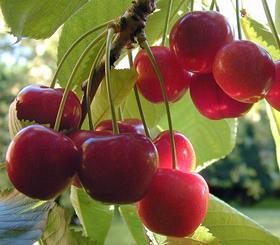
A new crop protection solution which enables growers to open and close fruit covers in minutes is promising increased efficiency, lower production costs and better product quality amid unpredictable weather conditions.
TheWayki solutionwill soon be installed in cherry orchards in Italy, Norway and elsewhere in Europe. And it is already being used by cherry growers in Chile to deploy and remove protective covers faster in response to changing weather.
The company claims a single worker can cover or remove the covers from one hectare of orchards in just 20 minutes. With most existing automatic or semi-automatic systems, this process takes far longer and requires significantly more labour, Wayki claims.
Growers can use the new system to give their crops exposure to natural conditions for as long as possible, while at the same time protecting them from hazards, such as rain or hail, quickly when they occur.
The system is operated with a conventional hand drill, which turns a winding mechanism to open and close the covers.
Cristián Lopezof Wayki Europe said: “Around the world, we are experiencing more and more severe and unexpected weather conditions. This has serious implications for the fruit business as it raises the possibility of events including rain and hail damaging fruit, and high winds damaging growing infrastructure such as poles and cables.
“Wayki is a very exciting development because it gives growers the control to cover and uncover their orchards and vineyards in a matter of minutes in response to these events.
He added: “It saves time and labour costs and we also believe ultimately helps produce a superior fruit. Wayki has proved itself in Chile and we are now in discussions with growers, installers and research centres in Italy and a number of other European countries.”
The Wayki solution sits above the structure of existing poles and it can use different kinds of covers across the same orchard space.
As well as cherries, the company is working with growers to develop Wayki for use in blueberries, apples and other crops, as well as in vineyards.
Keeping the fruit exposed to the air for longer, rather than inside the artificial microclimate created under covers, helps create a firmer and sweeter fruit. In the case of cherries grown under permanent cover the fruit is generally softer and less sweet.
Wayki was developed in Chile, where production of cherries is forecast to grow to almost 40,000ha by 2020. The country accounts for approximately 85 per cent of the southern hemisphere’s cherry exports to the northern hemisphere.
The patented Wayki system costs €350-450 per line, depending on the length of the line and the distance between poles.



